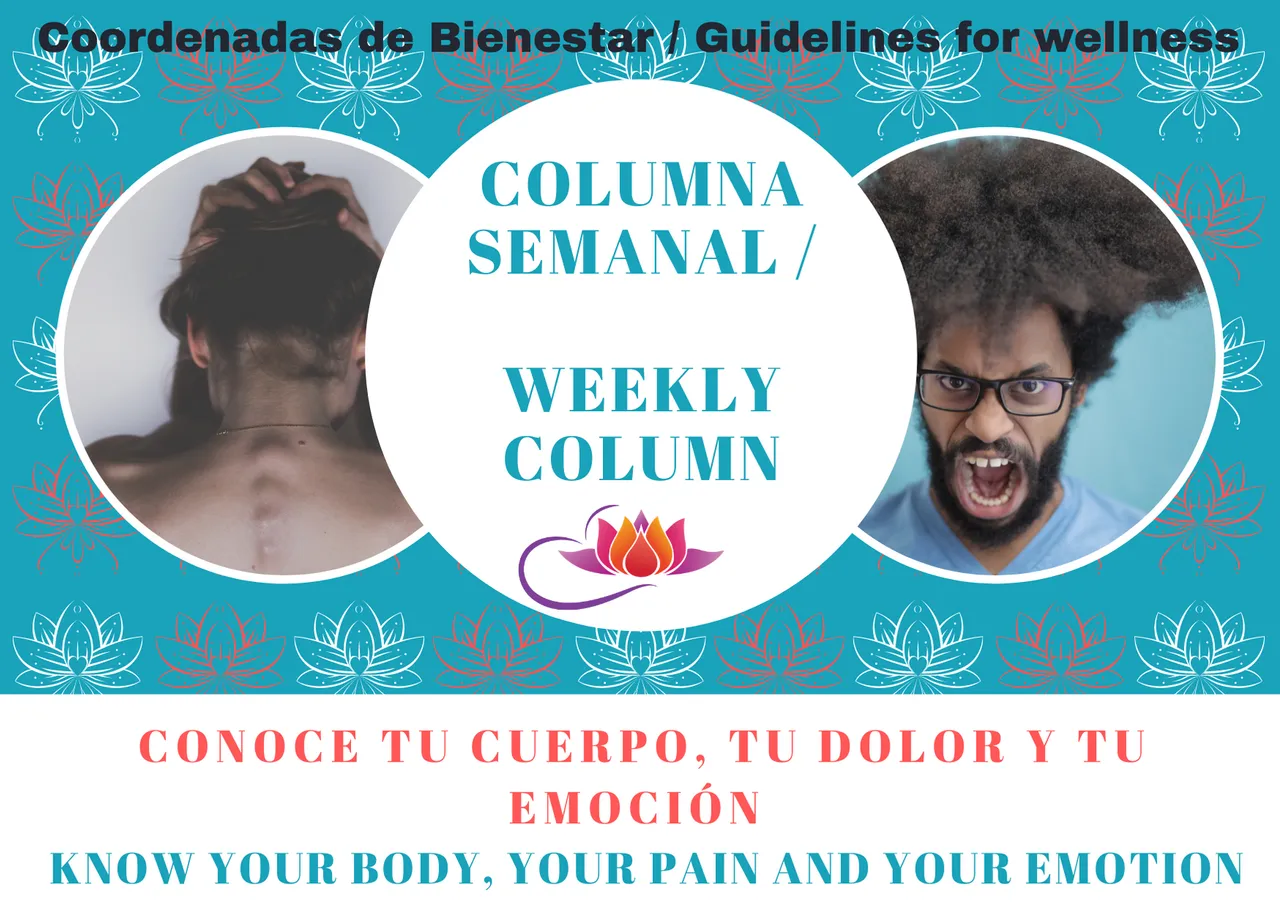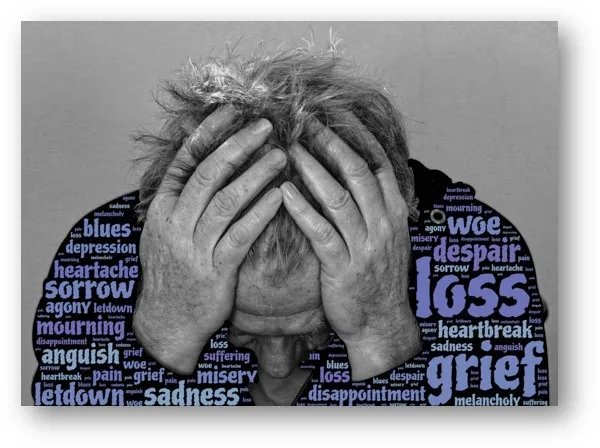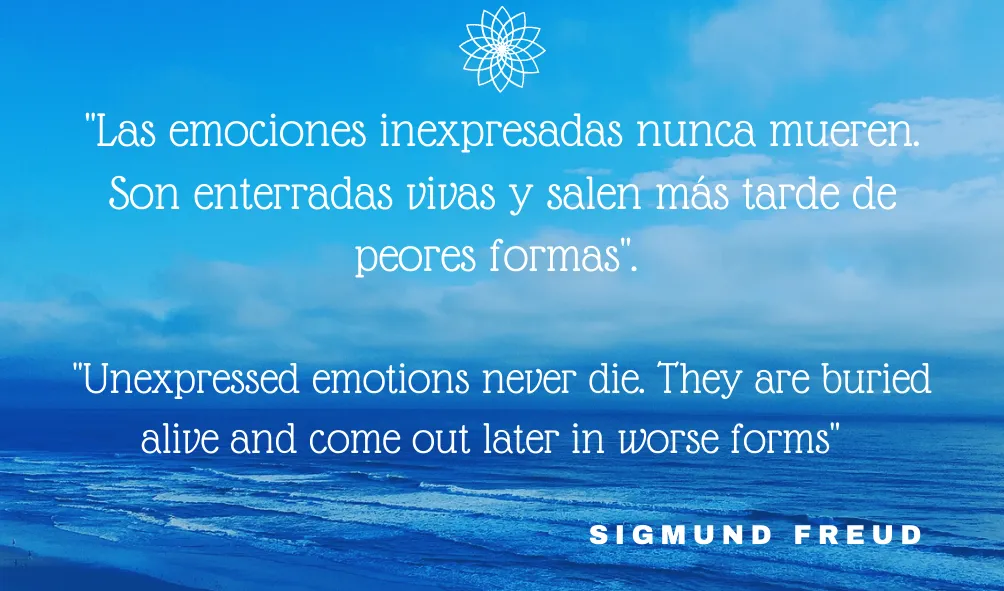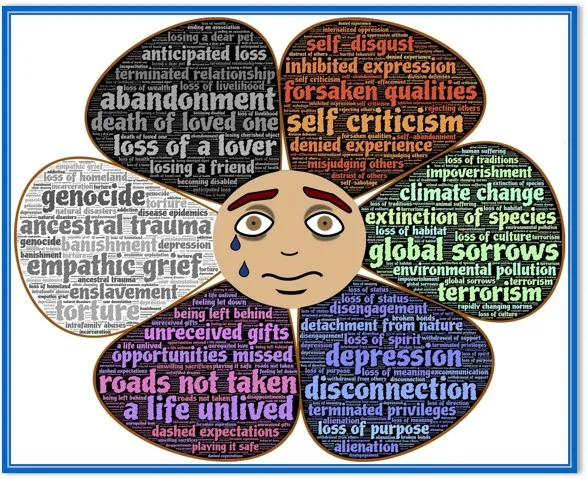
Fuente/ Source: Pixabay, Pexels
Español
Sin excepción, hombres y mujeres de todas las edades, culturas, niveles de educación y creencias, experimentan emociones y se relacionan cada día con otras personas que a su vez tienen un mundo emocional, de modo que pudiéramos afirmar que las emociones son un factor común que está presente en cada momento de la vida de todos, por lo que un buen manejo de las mismas nos conducirá a lograr una vida emocional sana y equilibrada.
En la columna de esta semana seguiremos abordando la dimensión emocional, como les mencioné en la columna anterior, es un tema con mucha tela que cortar que podemos ir desmenuzando progresivamente. En esta oportunidad dedicaremos las siguientes líneas a la interrelación de las emociones con nuestra salud física.
English
Without exception, men and women of all ages, cultures, levels of education and beliefs, experience emotions and relate every day with other people who in turn have an emotional world, so we could say that emotions are a common factor that is present in every moment of everyone's life, so a good management of them will lead us to achieve a healthy and balanced emotional life.
In this week's column we will continue to address the emotional dimension, as I mentioned in the previous column, is a topic with much to contribute, so we can go progressively unraveling. This time we will dedicate the following lines to the interrelation of emotions with our physical health.

Fuente/ Source: Pixabay
Escogí esta frase para desarrollar el tema de esta semana, creo que en muy pocas palabras es un buen resumen de lo que quiero compartirles:
«Los órganos lloran las lágrimas que los ojos se niegan a derramar.» SIR WILLIAM OSLER
Siento que culturalmente nos han llevado desde hace muchos años hacia distintas formas de represión de las emociones, incluso las han catalogado como un signo de “debilidad”, haciéndonos creer que sentir y expresar emociones nos hace débiles frente a los demás, al mismo tiempo ha sido para muchos un sinónimo de “manipulación”, y de acuerdo con muchos paradigmas o filosofías se cree que reprimiendo o controlando las emociones se evita el sufrimiento porque supuestamente “no las sentirías”.
Deslastrarnos de todas estas ideas equivocadas y darnos cuenta que reprimir las emociones tiene una consecuencia en el cuerpo físico es de suma importancia para nuestra salud, y nuestro primer gran paso en la gestión sana de nuestras emociones.
Las emociones no sólo nos hacen sentir felices, tristes, rabiosos entre otros estados, también afectan el funcionamiento de nuestros órganos y en consecuencia de nuestra salud, particularmente cuando no se expresan o se expresan inadecuadamente, desencadenan efectos sobre algunos órganos o aparatos del cuerpo que se traducen en dolor, alteraciones, disminución de nuestras defensas, entre otros efectos.
I chose this phrase to develop this week's theme, I think that in very few words it's a good summary of what I want to share with you:
"The organs weep the tears that the eyes refuse to shed."
SIR WILLIAM OSLER
I feel that culturally we have been led for many years to different forms of repression of emotions, even catalogued as a sign of "weakness", making us believe that feeling and expressing emotions makes us weak in front of others, at the same time it has been for many a synonym of "manipulation", and according to many paradigms or philosophies it is believed that repressing or controlling emotions avoids suffering because supposedly "you would not feel them".
To rid ourselves of all these misconceptions and realize that repressing emotions has a consequence in the physical body is of utmost importance for our health, and our first big step in the healthy management of our emotions.
Emotions not only make us feel happy, sad, angry among other states, they also affect the functioning of our organs and consequently our health, particularly when they are not expressed or are expressed inadequately, they trigger effects on some organs or body devices that result in pain, alterations, decrease in our defenses, among other effects.


Consciente de que este puede ser un tema muy polémico, aún discutido científicamente, en esta oportunidad voy hablarte más desde mis vivencias para que puedas luego hacer un examen respecto a tu propia experiencia e identificar si sufres o has padecido de algún “dolor emocional”.
Desde muy joven he tenido algunas dolencias persistentes en mi columna vertebral, tanto a nivel lumbar como cervical, cuadro que se empeoró por haber sufrido un par de accidentes de tránsito un poco aparatosos y de los cuáles agradezco hoy por hoy haber salido con vida. Luego de haber transitado por muchos especialistas, fisioterapeutas, quiroprácticos, masajistas, acupunturistas y muchos otros terapeutas entendí que algo más ocurría en mí que todos estos profesionales en la salud no podían solucionar, más allá de aliviar temporalmente el dolor.
De este modo empecé un viaje de autodescubrimiento que me trajo muchas noticias interesantes sobre mis procesos de vida. Para hacerles un resumen y no cansarlos con muchos detalles, puedo decirles hoy por hoy que era una persona muy acostumbrada a llevar miles de cargas encima, de ocuparme y hacerme responsable de mis cosas y las de los demás, sumado a eso tenía una actitud proactiva dónde asumía cada vez más cosas para “hacer” o “resolver”. Como guinda del pastel ser madre soltera me ha llenado la cabeza y el corazón de preocupaciones en más de una ocasión, lo que pudiera ser más dramático en un país que vive en hiperinflación desde hace más de una década.
En medio de todas esas circunstancias jamás demostré una emoción de preocupación o angustia, aun cuando las sufría por dentro, tampoco buscaba apoyo porque era de esas personas que consideraba las emociones como un signo de debilidad, al igual que sostenerme de otra persona. Una de muchas que creen que ser una mujer 4 x 4 y todo terreno te hacen más fuerte y empoderada para vivir la vida, y todo el tiempo estaba empujándome hacer más y mejor.
¿Me van siguiendo hasta aquí?
Resulta que en ese proceso de búsqueda me encontré que los dolores de la columna vertebral están asociados en general a un tema de supervivencia y sostén. Esto podemos entenderlo si vemos nuestra espalda como ese conjunto de músculos que sostienen y contienen el cuerpo, como el eje central de este templo físico.
El miedo a la escasez o la inseguridad material, acumular preocupaciones por dinero o asumir cargas muy pesadas de llevar son el origen emocional de este tipo de afecciones ¿Coincidencia? Definitivamente no.
Desde entonces, he estado trabajando en la restitución de ese equilibrio perdido, que, si bien he mejorado en muchos aspectos, aún sigo descubriendo temas que transitar al respecto.
Aware that this can be a very controversial topic, even scientifically discussed, this time I will talk more from my experiences so that you can then make an examination regarding your own experience and identify if you suffer or have suffered from any "emotional pain".
Since I was very young I have had some persistent ailments in my spine, both at lumbar and cervical level, a condition that was worsened by having suffered a couple of strong traffic accidents and from which I am grateful today to have come out alive. After going through many specialists, physiotherapists, chiropractors, massage therapists, acupuncturists and many other therapists, I understood that there was something else going on in me that all these health professionals could not solve, beyond temporarily relieving the pain.
Thus I began a journey of self-knowledge that brought me a lot of interesting news about my life processes. To summarize and not tire you with too many details, I can tell you today that I was a person used to carry thousands of burdens, to take care and take responsibility for my things and those of others, plus I had a proactive attitude where I took on more and more things to "do" or "solve". As icing on the cake, being a single mother has filled my head and heart with worries on more than one occasion, which could be even more dramatic in a country that has been living in hyperinflation for more than a decade.
In the midst of all these circumstances, I never showed any emotion of worry or anguish, even when I was suffering inside, nor did I look for support because I was one of those people who considered emotions as a sign of weakness, as well as holding on to someone else. One of many who believe that being a strong and capable woman makes you more empowered to live life, and all the time I was pushing myself to do more and better.
Are you following me here?
It turns out that in that process of searching I found that spinal pain is generally associated with a survival and support issue. We can understand this if we see our back as that set of muscles that support and contain the body, as the central axis of this physical temple.
The fear of scarcity or material insecurity, accumulating worries about money or assuming heavy burdens to carry are the emotional origin of these types of conditions. Definitely not.
Since then, I have been working on the restitution of this lost balance, and although I have improved in many aspects, I am still discovering issues to deal with in this regard.

Fuente/ Source: Pixabay

Reto para esta semana:
Ahora reconozco que somos seres emocionales, y como tales, estamos expuestos a una constante transformación según nuestros cambiantes estados de ánimo, emitiendo y atrayendo determinadas situaciones y energías, generando una relación muy cercana entre nuestros pensamientos y emociones y nuestra salud física.
Sin entrar en detalles científicos que no son el área de mi experticia, lo que quiero destacar de todo esto es que cuando no canalizamos bien nuestras emociones nuestro cuerpo físico sufre porque las emociones disparan un montón de procesos internos, empezando por el cerebro quién es el encargado de generar, interpretar e integrar nuestras emociones, dónde se involucran funciones básicas del sistema nervioso central, se activan neurotransmisores, se produce la liberación de ciertas hormonas, entre otros efectos que desencadenan reacciones en todos los sistemas y órganos del cuerpo.
Te recomiendo leer este interesante artículo de Eduardo Calixto titulado “Emociones en el Cerebro”, publicado en la Revista de la Universidad de México.
Es por ello que la invitación de esta semana es reflexionar sobre estas preguntas:
¿Cuáles son los factores que impulsan tu vida hacia el desorden emocional?
¿Cómo sueles reaccionar a estas emociones que te invitan al caos?
Recuerda que tu participación en la Columna es valorada por @elcomentador, quiénes seleccionarán 5 comentarios para apoyarlos con su cuenta.
Además estaremos premiando algunos comentarios con Lotus. Participar es muy sencillo, solo escribe tu respuesta en la caja de comentarios. Puedes también hacer reblog de esta publicación para fomentar la participación de más Hivers en la columna.
Ten en cuenta algunos lineamientos que debes seguir para hacer un buen comentario, descritos en esta publicación de @elcomentador.
Challenge for this week:
Now I recognize that we are emotional beings, and as such, we are exposed to a constant transformation according to our changing moods, emitting and attracting certain situations and energies, generating a very close relationship between our thoughts and emotions and our physical health.
Without going into scientific details that are not the area of my expertise, what I want to highlight from all this is that when we do not channel our emotions well our physical body suffers because emotions trigger a lot of internal processes, starting with the brain who is responsible for generating, interpreting and integrating our emotions, where basic functions of the central nervous system are involved, neurotransmitters are activated, the release of certain hormones occurs, among other effects that trigger reactions in all systems and organs of the body.
I recommend you to read this interesting article by Eduardo Calixto entitled "Emotions in the Brain", published in the University of Mexico Magazine.
That is why this week's invitation is to reflect on this question:
What are the factors that drive your life towards emotional disorder?
How do you usually react to these emotions that invite you to chaos?
Remember that your participation in the Column is valued by @elcomentador, who will select 5 comments to support them with their account.
We will also be rewarding some comments with Lotus. Participating is very easy, just write your answer in the comment box. You can also reblog this post to encourage more Hivers to participate in the column.
Keep in mind some guidelines you should follow to make a good comment, described in this post from @elcomentador.

Estamos muy contentos por la participación que tuvimos en los comentarios de nuestra Columna anterior. Agradecemos a: @yenmendt, @evev, @paolazun, @cesarsj5, @jomarbym, @numa26, @care1869, @psyfire25, @marybellrg, @tibaire, @fragozar01, @cristanza42, @helencct, @isabelpena, @jesustiano por compartirnos sus experiencias sobre el tema y acompañarnos esta semana.
Deseamos compartir 30 Lotus para: @fragozar01, @marybellrg y @psyfire25 (10 lotus cada uno).
Nuestro aliado @elcomentador estará publicando próximamente los comentarios que resultaron seleccionados por su equipo de la Columna anterior.
We are very pleased with the participation we had in the comments of our previous Column. We thank: @yenmendt, @evev, @paolazun, @cesarsj5, @jomarbym, @numa26, @care1869, @psyfire25, @marybellrg, @tibaire, @fragozar01, @cristanza42, @helencct, @isabelpena, @jesustiano for sharing their experiences on the topic and joining us this week.
We wish to share 30 Lotus for: @fragozar01, @marybellrg y @psyfire25 (10 lotus each).
Our ally @elcomentador will be publishing soon the comments that were selected by his team from the previous column.
Recuerda unirte a nuestras cuentas: @hispapro y @miriannalis en #Hive y Twitter para que estés informado de todas las actividades que tenemos planeadas para ti.
Remember to join our accounts: @hispapro and @miriannalis on #Hive and Twitter to be informed of all the activities we have planned for you.


- Traducción realizada con www.DeepL.com / Translated with www.DeepL.com/Translator
- Banners elaborados en Canva con los recursos disponibles en su versión gratuita / Banners elaborated in Canva with the resources available in its free version.
Publicaciones anteriores / Previous publications:






